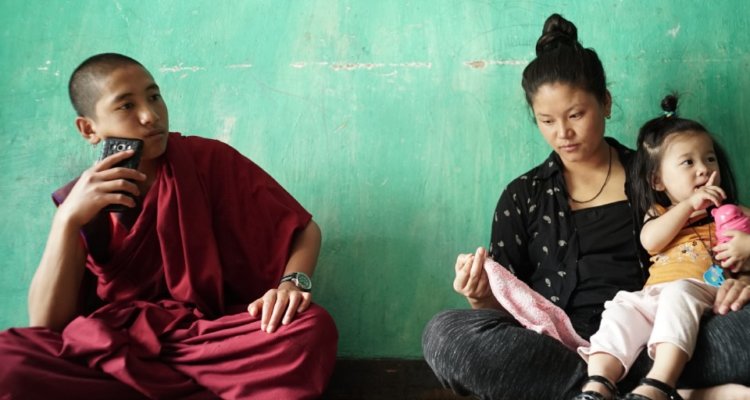When you think of monks living their lives in the mountains in Asia, you don’t necessarily imagine them on social media and staring at smartphones. But in “Sing Me A Song,” not only do we meet the monks of the rural monastery in Bhutan, but we also see how one teen Buddhist monk, Peyangki, is not only using social media but also finding love.
As seen in the trailer for “Sing Me A Song,” we are reintroduced to Peyangki, a subject of a previous documentary “Happiness” from filmmaker Thomas Balmès, a teen monk that has found love on WeChat. The film shows the trials and tribulations of two people falling in love from very, very different walks of life. As mentioned, the film is directed by Balmès, an award-winning filmmaker that previously worked on films such as “Happiness,” “Damages,” and “Babies.”
READ MORE: ‘Night Stalker’ Trailer: The Hunt For A Serial Killer Begins On Netflix In January
“Sing Me a Song” debuts on VOD on January 1, 2020. You can watch the trailer below.
Here’s the synopsis:
Award-winning director/producer Thomas Balmès’ returns to one of his beloved Happiness (2014) subjects, Peyangki, now a teenaged Buddhist monk living in a rural (yet Wi-Fi equipped) monastery in Bhutan, absorbed in the wonders of the world that are a simple click away. The structured daily village rituals of prayer and candle lighting now compete with the powerful lure of smartphones and TV. Apps for chats and dating introduce the monks to girls and violent video games, neither of which quite line up with the traditional vows of the monks. Peyangki is passionate about love songs and forms a relationship over an app, WeChat, with a young singer (Ugyen) in the “big city” of Thimphu. Distracted and disinterested in study, and often scolded by his masters and mother, he sells medicinal mushrooms to make enough money to leave the monastery and travel to Ugyen. A nuanced portrait of a young man’s introduction to the world, Balmès offers us an eye-opening snapshot of the effects of technology, and challenges us to reassess our perceptions of self-worth and beliefs in an age of unparalleled connectivity.

